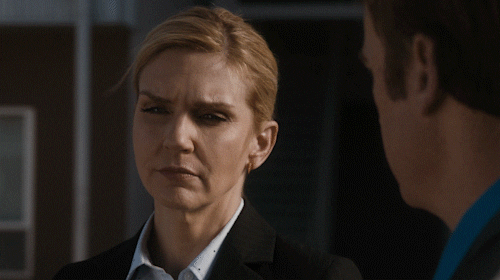Someone Once Called Me a Thought Leader and I Didn’t Hear Anything Else He Said After That
a story about overcoming imposter syndrome
Hi, it’s me. I’m tickled that so many of you enjoyed my “microwaved” post last week1 — I had no idea the metaphor would take off like it did. I was mostly trying to avoid using a sports metaphor like “punting” or “tee-ing up,” or worse… a mixed metaphor of “half baked” and “punting.” More microwaved posts are on the way!
Welcome to all readers who have joined since the new year! If you read to the end of today’s essay, I link to a “starter pack” of essays from last year that will catch you up to speed. To my regulars: good to see you again, thanks for being here.
In the height of my Boss Lady Imposter Syndrome2 days (or BLIS 😂), I was in a meeting with someone who said to me in passing (as if people said this sort of thing to me all the time) "...and partnering with thought leaders like you…."
This drive-by statement caused me to break out into a cold sweat because just before this person arrived at the coffee shop for our meeting, I was distracted by the possibility that I had accidentally tucked the back of my skirt into the top of my yoga pants after using the restroom.
I was working from home at the time and didn’t leave the house much (this was around 2014, long before COVID). My standard daily wardrobe included t-shirts, yoga pants, and a gray hoodie from my disproportionately large collection of gray hoodies. For business events or client connections, I had a few “meeting outfits” I would wear. These infrequent occasions never escaped my daughter’s eye, prompting her pre-teen commentary: “Whoa, that’s different. Where are you going today?”
So yeah, someone referred to me as a "thought leader" that day, and then I missed the next six things he said.
Side Question: Do "thought leaders" keep their phones tucked into their bra when they have no available pockets, and then can't figure out how to remove said phone to check the time while sitting across the table from a man who may or may not be excited/offended that you are pulling things out of your bra during a business meeting?
For most of my adult life I’ve walked into almost every professional situation assuming 1) nobody remembers me, and 2) I’m the least smart/interesting/knowledgeable person in the room. I know this is dumb, but I used to change my haircut all the time and I honestly thought people wouldn’t recognize me. Why? Because I’m forgettable, of course! I’m small short and quiet, I don’t have a degree in anything, I haven’t written a book about anything, and I’m not a director of anything.
In my mind, there was no reason for anyone to care about what I had to say.
One day I was hired by a west coast boutique hotel chain and was invited to their Seattle office for a marketing meeting. It was a room full of people wearing suits and suit-like attire, and I was… not wearing suit-like attire, but rather a category of clothing I like to call Professional Lounge Wear because it looks professional and feels like pajamas.
Again, this was long before COVID work-from-home culture identified the difference between “hard pants” and “soft pants.” I was ahead of the times.
Anyway, I did my thing during that meeting with the Very Important People. As I was exiting the conference room, I heard the female CEO/President/Owner say to her team, “She’s got some talent!” followed by a murmur of “Yeah, she’s great,” and other agreements as the door closed behind me.
Here is actual footage of me processing those comments as I waited for the elevator:
I have dozens of stories like this where I felt like I had no business being in a room, yet when I opened my mouth I seemed to know what I was talking about with a measure of confidence and authority. And here’s the kicker: sometimes people paid me money to keep doing it.
Every time this happened, I was terrified that somebody would finally figure out that I didn’t actually belong there.
One of the reasons I achieved Expert Level Imposter Syndrome by the time I hit my 40s was because I’d hacked together a self-taught, made-up life, wandering through decades from one thing to the next in a disconnected string of opportunities.
My experience ranged from accounts payable to personal assistant to writer & producer to project manager to communications manager and more. By the time I hit my early 50s, my resume looked like a 1900s crazy quilt made from all the leftover fabrics.
In late 2020 my friend posted this to Facebook:
“For those of you who may be like me and have a less than straightforward career path, this book is such a fascinating read on why "generalists" are critical team members and core to solving really challenging problems.”
She was talking about the book, Range, by
. I was immediately intrigued and downloaded it to my Kindle. In reading Range, I found the connections between those “disconnected string of opportunities” and it clicked: I was a generalist, and generalists are valuable contributors.This realization was empowering, and I started changing how I pitched myself. Instead of being embarrassed about my patchwork career, I leaned into it as an asset, showcasing how I carried forward my past learnings and experiences into my new roles. Gradually, I started to feel differently about myself and had more confidence going into conversations.
For example, after an initial phone screen with a marketing and PR firm here in Seattle, I had a second interview via Zoom with the owner. After 15 minutes of a scheduled 30 minute interview, he cut the meeting short and said he’d be in touch. I assumed I was getting the brush-off, but to the contrary, he had quickly identified me as a “T-shaped” person, was intrigued, and wanted to connect me to the next interviewer in the process.
Admittedly, I had to look up what a T-Shaped person was, and the metaphor makes sense: a person who has a basic knowledge in many areas with a deeper level of expertise and skill set in one specific area. I didn’t end up getting that job, but I appreciated that I was seen as a “generalist” of value.
Finally, I’ll leave you with a story from Range that resonated with me. In his book, Epstein wrote about Frances Hesselbein, CEO of the Girl Scouts, whose early career experiences looked a lot like mine up to this point in my life. At age 54, Frances stepped into what she described as her first “professional role.” Prior to that she’d been a homemaker and volunteer. She solved problems, filled gaps, and enjoyed “doing what was needed at the time.” I’ll be 52 this year, and I’m just now figuring out what I want to be when I grow up after a lifetime of trying on new experiences.
You can read the full story on Epstein’s Substack.3
After reading Hesselbein’s story, I thought back to all the times I got bored in my work, and I discovered a pattern: I love to clean up messes and bring order to chaos, and I loathe routine maintenance.
My first memory of this was when I worked as a receptionist for a software company around the age of 20. It was my first non-college job, and one of my duties was to maintain the office supply inventory. At one point, something about the record keeping got messed up (not on my end) and I had to untangle an unreconciled series packing slips and invoices to straighten it all out. The company controller was impressed with my level of detail and promoted me into the accounts payable department.
I hated that job. I hated it with all my heart and soul. It was the most mundane, pencil-pushing thing I’ve ever done, and I messed it up numerous times because I was bored and stopped paying attention to details. I left that company within a year for a new, more exciting adventure.4
Looking back on that experience and many similar experiences since then, I now know that it’s not the detail or the routine that I crave, it’s the problem solving and messiness that I love. Once I click the last puzzle piece into place and set up the systems for maintaining order, I get bored.
So yeah. I still don’t see myself as a “thought leader” – that term is SO ten years ago anyway – but I’m no longer burning my energy feeding the Imposter Syndrome. When I walk into a room, I feel more confident about what I contribute, and where I’m not the expert, I ask questions or defer to others. Maybe you got to this point long before I did, but I’ve always been a late bloomer.
[Oh snap, is that Imposter Syndrome Thinking??]
I’d love to hear your Imposter Syndrome stories! Leave a comment, or if you have a Substack, write about it and tag me in your post. I know I’m not the only one!
Until next time,
Jen
News + Notes 🌼
In case you missed it, I started a new section of Jen Zug Writes called Schrödinger’s Polyp where I publish updates and reflections related to my husband’s cancer diagnosis (which is fresh). The latest update from Saturday is here: Scenes from Week One.
🌼 🌼 🌼
If you’re a new-ish subscriber, welcome! I’ve bundled a sampling of essays you may have missed from 2022 in what I like to call, the Jen Zug Writes Starter Pack:
The History of Birthdays (link) - I write about all the times I stepped into new things.
Today is My Birthday (link) - I write about why I started this new writing project.
Is my Childhood Piano Teacher the Reason I’m in Therapy?! (link) - I write about my tendency to lead with fear, and my first memory of being afraid.
My Mom Died Last Year (link) - I write about the absurdity of life marching on when all I want to do is grieve.
My Community Origin Story (link) - The first in a 3-part series on why community is important to me.
My Three Month ‘Stackiversary and Insights for Writers with Less Than 200 Readers (link) - I share my Substack goals, hard numbers, and insights as a nobody writer on a platform with fancy-pants writers.
I used to write and produce animated videos for a small business Bryan and I had, and one of our Friendployees called me Boss Lady.
I moved across the country and started working at a residential treatment program for women experiencing drug and alcohol addiction. In the words of Chandler Bing, could this BE any more different from my accounts payable office job?!








I feel like "Imposter Syndrome" is due for a new definition. Because an imposter is "a person who pretends to be someone else in order to deceive others" and when I read about your work travels, I hear someone who couldn't/wouldn't/shan't ever pretend or deceive.
I've sat across the table from fancy-soundin' folks who worked in the same job for decades—and they know they have to appear fancy in order to keep fooling everybody. I think they're the real imposters.
Your side comment had me laugh aloud. The descriptor of ‘organizing chaos’ is in A Little About Me section of my resume. I love operations and problem solving, and consider myself a generalist. I’m a passionate gardener, and I, too, love to write. As I get to know you more in this space, I’m feeling a bit cloned.
I look forward to your thoughts each week. Thought leader? Perhaps so.